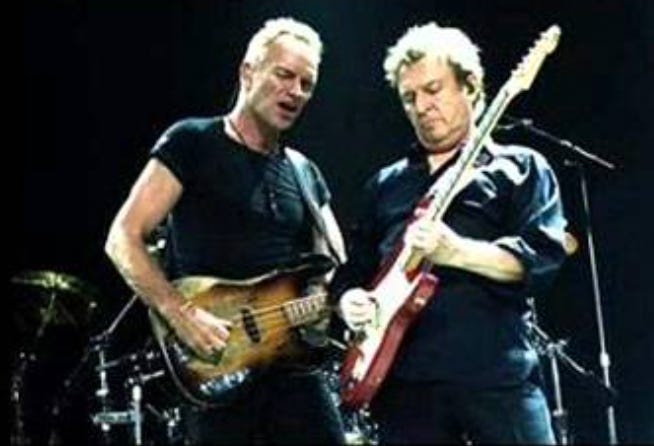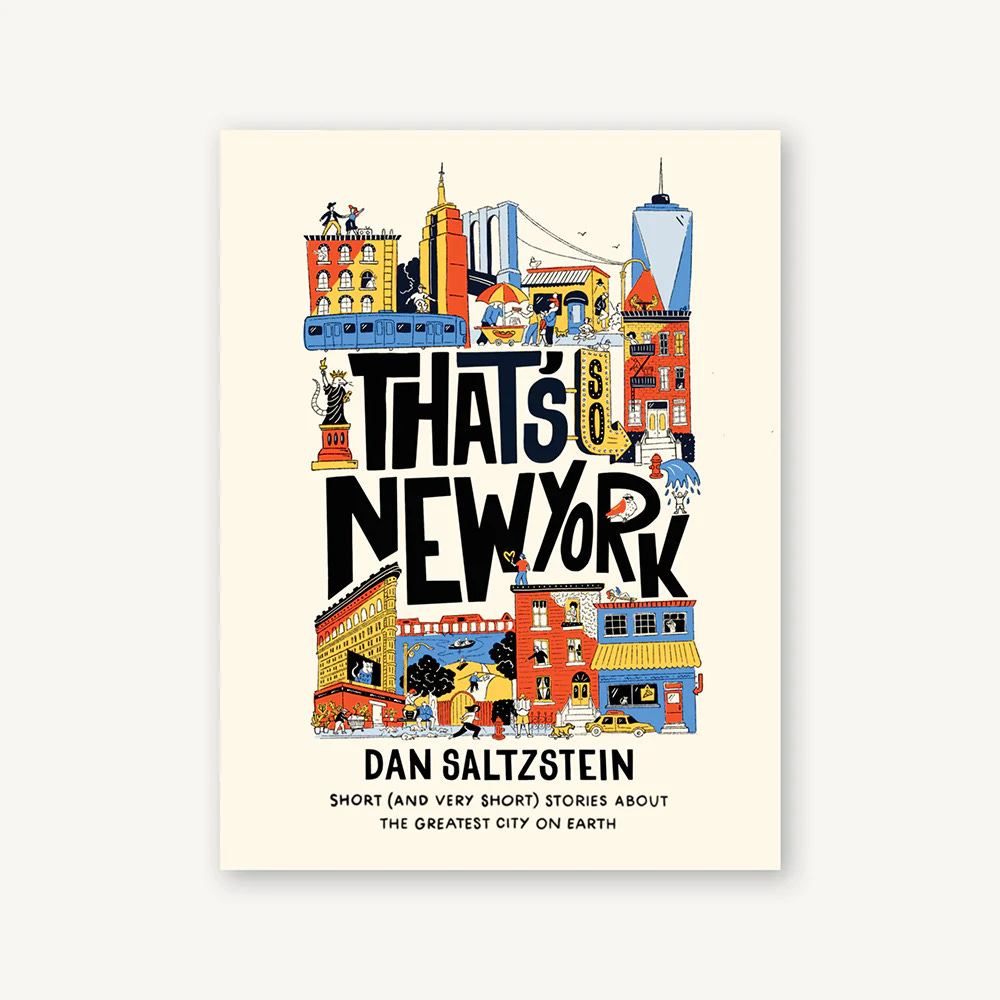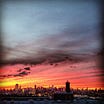Drama! at the Knitting Factory
A night in the 90s when Sting made a cameo at an Andy Summers Trio show. An excerpt of "That's So New York," a new anthology.
This essay is adapted from “That’s So New York: Short (and Very Short) Stories about the Greatest City on Earth,” out March 12 from Chronicle Books. It can be pre-ordered here.
For me, the best New York celebrity sightings aren’t the marquee names. They are the ones you know by sight, but may or may not even know their names—and if you do, you feel a special pride in recognizing them. Seeing the late, great character actor Bruno Kirby in a West Village bakery. In the Theater District, running into Paul Benedict; you might know him as the neighbor on The Jeffersons or the guy they thought was Guffman—but wasn’t—in Waiting for Guffman. (He was taken aback, and visibly delighted, at my “big fan!” comment.) Meeting Jack Black—who I recognized from his duo Tenacious D, but had yet to break out as an actor—at an improv show. (He seemed less enthused about my “big fan!” comment.)
But there are exceptions.
One day in the ’90s, my friend’s college buddy, who worked the box office at the Knitting Factory—an intimate music venue then located in TriBeCa—called my friend to share a rumor. The show that night would be Andy Summers, the guitarist from The Police, playing with his jazz-fusion trio. As it happened, Sting was in town to play a series of shows at the Paramount, the medium-sized theater at Madison Square Garden. The rumor was that Sting would swing by and play a set with Summers.
The Police had had an infamously acrimonious last few years together and, post-breakup, had played together only at Sting’s wedding. So my friend and I got two tickets in the spot’s tiny balcony: it was just us and two empty seats.
Summers started and we sat through his first set of ponderous instrumentals; he seemed to want to cram as many notes into each song as possible, at the expense of actually appealing songs. (Sorry, Andy Summer Trio fans.)
Maybe it was the intimate venue, maybe the contrast with Summers, but Sting was clearly, immediately, a capital R capital S Rock Star. He commanded the room.
The set ended. We considered leaving, but decided to stick around for at least the beginning of the second set, just in case. Just as the set was about to start, I felt the vibration of someone taking the empty seat next to me. I looked up at Sting, joined by a friend. He looked . . . like Sting: taut, handsome, preserved in amber. Summers continued for another couple of songs. Was Sting just there to watch the show? We were growing increasingly impatient.
Then, finally: “We’ve got a special friend in the audience tonight,” Summers said. “Let’s see if we can bring him up here.”
Off went Sting to the stage and the audience roared. Summers announced they had prepared one of the Police’s more complicated songs—“Message in a Bottle,” I think. But Sting wasn’t going to make this easy. “Nah, let’s do ‘Walking on the Moon.’ Just swing it,” he instructed, humming the main riff as he snapped his fingers in syncopation, like Duke Ellington kicking off a big-band tune.
Perhaps it’s the filter of memory, but I remember Summers rolling his eyes. Regardless, the band was game and they launched into a solid, jazzy version of the song. Sting sounded amazing. Maybe it was the intimate venue, maybe the contrast with Summers, but Sting was clearly, immediately, a capital R capital S Rock Star. He commanded the room.
When the song ended, Sting came back upstairs, collected his friend, and left.
But Summers, unaware of Sting’s departure, continued: “Let’s see if we can bring him back up for one more song!” Rodney and I exchanged pained glances. The trio started on the song they had prepared, but of course Sting never joined them. As far as I could tell, my friend and I were the only ones who knew he had left, and we quickly snuck out after them. It was just too painful to watch.
I imagined Summers raging backstage after the show. Once again, Sting had screwed him, maybe on purpose. But maybe that was ungenerous. Maybe Summers had just been happy to play for the first time in years with his old bandmate.
About a decade later, the Police finally reunited for a tour. I went to a show at Giants Stadium. It was . . . fine. The drama I had witnessed at the Knitting Factory was far more interesting.








